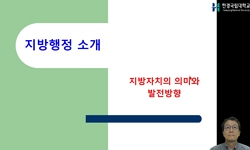서애 류성룡 사후 그의 학문과 사상은 어떻게 계승되고 전개되었을까? 류성룡에게는 문도와 제자들이 많이 있었지만 이들에 대한 연구가 활발한 편은 아니다. 서애학은 그의 제자들에게도 ...
http://chineseinput.net/에서 pinyin(병음)방식으로 중국어를 변환할 수 있습니다.
변환된 중국어를 복사하여 사용하시면 됩니다.
- 中文 을 입력하시려면 zhongwen을 입력하시고 space를누르시면됩니다.
- 北京 을 입력하시려면 beijing을 입력하시고 space를 누르시면 됩니다.

졸재(拙齋) 류원지(柳元之)의 사상과 경세론- 서애학의 계승 전개와 관련하여 = Joljae Ryu Won-ji’s Philosophy and Statecraft -A successor and developer of Seoae’s Scholarship-
한글로보기https://www.riss.kr/link?id=A109735822
-
저자
장승구 (세명대학교)
- 발행기관
- 학술지명
- 권호사항
-
발행연도
2025
-
작성언어
Korean
-
주제어
Joljae Ryu Won-ji ; Ryu Seong-ryong ; Seoae studies ; Toegye studies ; Sadan Chiljeong theory ; administration theory ; 졸재 류원지 ; 류성룡 ; 서애학 ; 퇴계학 ; 사단칠정론 ; 경세론
-
등재정보
KCI등재후보,미등재
-
자료형태
학술저널
-
수록면
5-38(34쪽)
- DOI식별코드
- 제공처
- 소장기관
-
0
상세조회 -
0
다운로드
부가정보
국문 초록 (Abstract)
류원지는 성리설 뿐만 아니라 경세 문제에도 많은 관심을 가지고 있었다. 그의 경세론은 군권(君權)을 강조하고, 백성을 중시하여 백성의 민생을 최우선으로 하고, 군사 문제에 대해서도 상당한 관심을 가지는 특성을 보여주었다. 군권 중시의 연장선에서 예송 논쟁에서는 서인의 기년설을 적극적으로 비판하는 입장을 취하였다. 류원지는 임란 때 류성룡이 주화오국 하였다는 비난에 맞서 사실은 류성룡이 최선을 다해 구국활동을 하였고, 주화오국론은 잘못된 주장임을 역사적 사실에 근거하여 해명하였다. 류원지는 심학을 중시하면서도 경세에 지대한 관심을 가졌으며 군사 문제에도 조예가 깊었던 서애 류성룡의 학문과 사상을 계승하는 한편 서애의 구국활동의 정당성을 해명하는 등 서애학의 계승과 전개에 있어서 핵심적 역할을 하였던 17세기 후반 영남 남인의 대표적 학자라고 할 수 있다.
서애 류성룡 사후 그의 학문과 사상은 어떻게 계승되고 전개되었을까? 류성룡에게는 문도와 제자들이 많이 있었지만 이들에 대한 연구가 활발한 편은 아니다. 서애학은 그의 제자들에게도 전승되었지만 후손들에 의해서도 계승되었다. 졸재 류원지(1598∼1674)는 류성룡의 장손으로서 서애학을 계승 발전시킨 대표적 학자이다. 류원지는 성리학에 대해서도 깊은 관심을 가지고 연구하였다. 그는 율곡 심성론의 문제점을 비판하고, 퇴계 성리학의 정맥을 계승하여 “성이 곧 이(理)”라는 주장을 펼쳤다. 또한 수양론에 특히 깊은 관심을 가지고 「수방심도병설(收放心圖幷說)」⋅「변화기질도병설(變化氣質圖幷說)」을 지었으며 주정거경(主靜居敬)을 주장하였다.
류원지는 성리설 뿐만 아니라 경세 문제에도 많은 관심을 가지고 있었다. 그의 경세론은 군권(君權)을 강조하고, 백성을 중시하여 백성의 민생을 최우선으로 하고, 군사 문제에 대해서도 상당한 관심을 가지는 특성을 보여주었다. 군권 중시의 연장선에서 예송 논쟁에서는 서인의 기년설을 적극적으로 비판하는 입장을 취하였다. 류원지는 임란 때 류성룡이 주화오국 하였다는 비난에 맞서 사실은 류성룡이 최선을 다해 구국활동을 하였고, 주화오국론은 잘못된 주장임을 역사적 사실에 근거하여 해명하였다. 류원지는 심학을 중시하면서도 경세에 지대한 관심을 가졌으며 군사 문제에도 조예가 깊었던 서애 류성룡의 학문과 사상을 계승하는 한편 서애의 구국활동의 정당성을 해명하는 등 서애학의 계승과 전개에 있어서 핵심적 역할을 하였던 17세기 후반 영남 남인의 대표적 학자라고 할 수 있다.
다국어 초록 (Multilingual Abstract)
As a representative scholar of the Nam-in group during the 17th century, Ryu Wonji played a key role in terms of succeeding and developing Seoae’s scholarship who was immersed in moral self-cultivation while overseeing government administration and military affairs.
After the death of Seoae Ryu Seong-ryong(1542~1607), who carried on and developed his learning and thought? Although Seoae had many disciples, scholars today rarely discuss their works. Seoae’s scholarship was not only passed down to his disciples, ...
After the death of Seoae Ryu Seong-ryong(1542~1607), who carried on and developed his learning and thought? Although Seoae had many disciples, scholars today rarely discuss their works. Seoae’s scholarship was not only passed down to his disciples, but also to his descendants. Joljae Ryu Won-ji (1598~1674) is a representative scholar who succeeded Seoae’s scholarship as his eldest grandson. Ryu Won-ji was also an accomplished scholar of Neo-Confucianism. In critique of Yulgok’s philosophy of mind and emotion, Ryu Won-ji followed Toegye’s philosophy: he argued that human nature is Princieple (li 理). In addition, with a particular interest in theory of moral self-cultivation, he wrote “An interpretation of reining in the unbridled mind with a diagram”(收放心圖幷說)” and “An interpretation of changing one’s temperament with a diagram,” in which he emphasized “prioritizing inner calm and residing in reverence(主靜居敬).” Apart from the theory of Neo-Confucianism Ryu Won-ji addressed the issues of government administration. He developed his own theory of administration by emphasizing monarchic power(君權) and the importance of the people. He prioritized the people’s livelihood, and paid keen attention to military affairs. In the ritual (禮訟) debate, he emphasized monarchic power, adamantly criticizing the position taken by the Seo-in faction. Countering the accusation that Ryu Seong-ryong pursued peace negotiations with Japan, Ryu Won-ji argued that Ryu Seong-ryong had done his best to save the country as the Prime Minister during the Imjin War.
As a representative scholar of the Nam-in group during the 17th century, Ryu Wonji played a key role in terms of succeeding and developing Seoae’s scholarship who was immersed in moral self-cultivation while overseeing government administration and military affairs.
동일학술지(권/호) 다른 논문
-
- 서애학회
- 최병현
- 2025
- KCI등재후보,미등재
-
서애 류성룡의 양명학 이해에 대한 연구- 시기별로 본 관점과 특징
- 서애학회
- 조용미
- 2025
- KCI등재후보,미등재
-
- 서애학회
- 김영진
- 2025
- KCI등재후보,미등재
-
서애 류성룡의 사회자본- 거경행간과 신뢰지지를 중심으로
- 서애학회
- 정학섭
- 2025
- KCI등재후보,미등재




 KCI
KCI KISS
KISS







